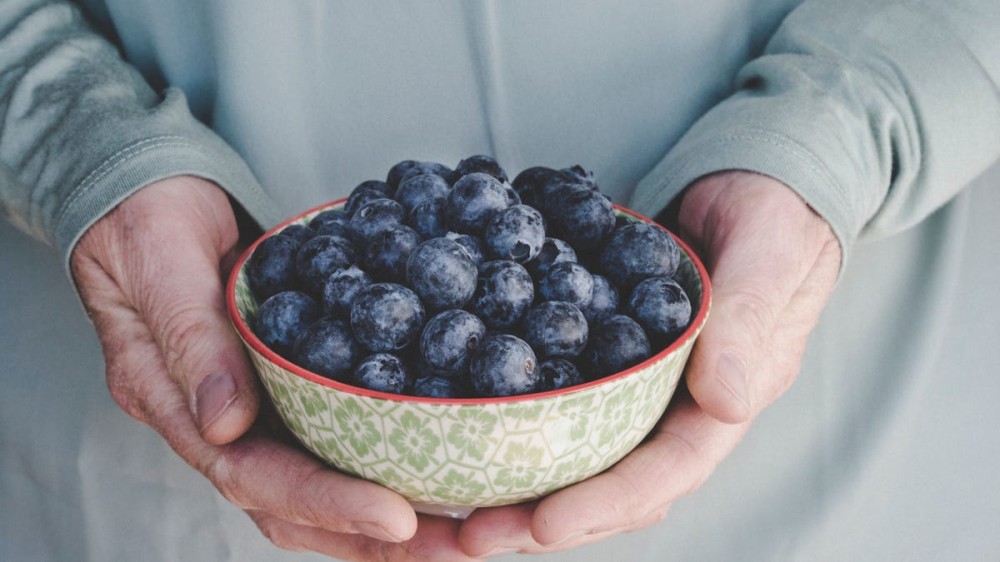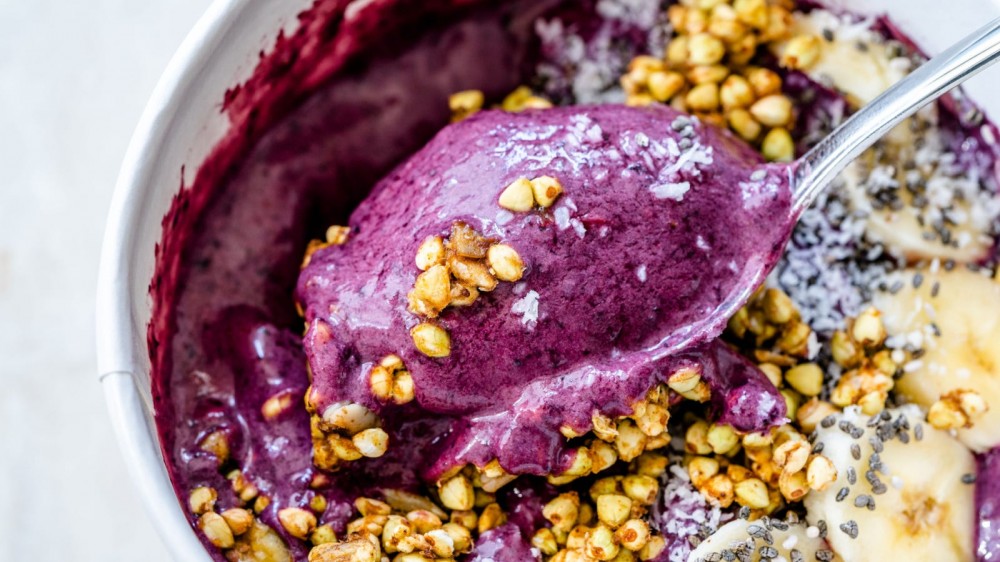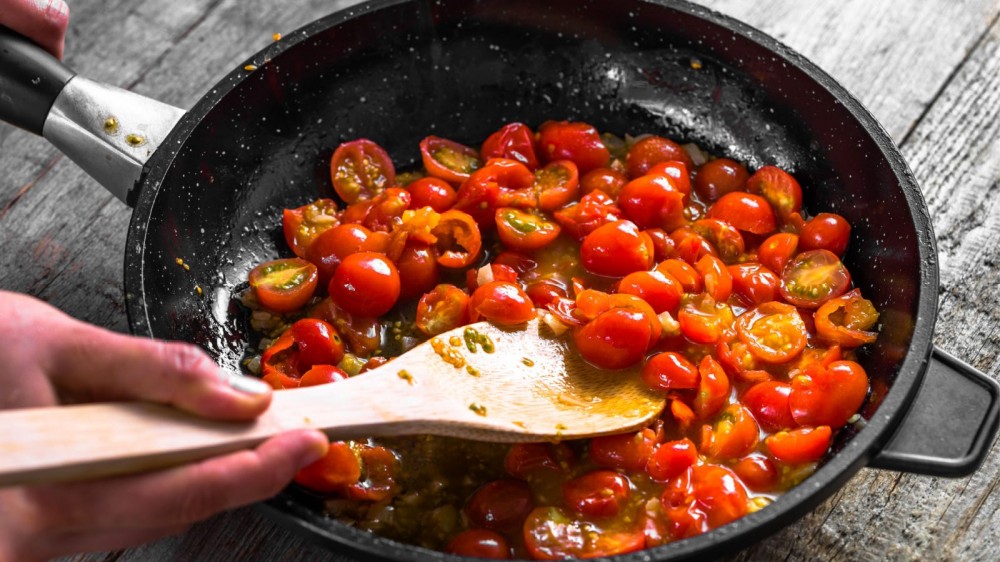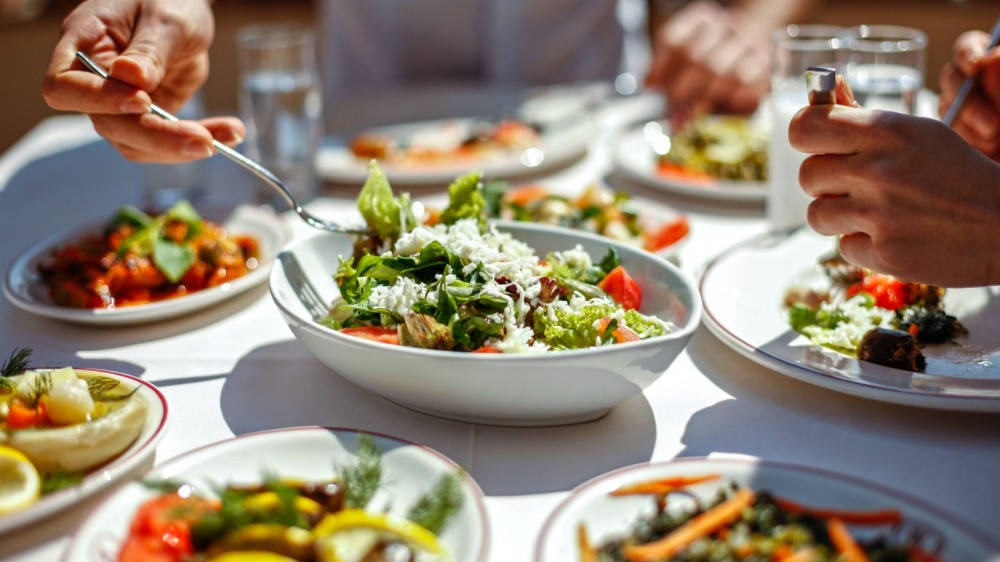
We’re constantly told we should be “eating the rainbow,” meaning we should choose a variety of different-colored fruits and vegetables to put on our plates. After all, every color has its own powerful active compound that brings health benefits.
But of the colors, blues and purples are some of the most important thanks to their high level of antioxidants—essential aids in our fight against inflammation and disease.
What Are Antioxidants?
Are There Different Types of Antioxidants?
How Do You Cook with Antioxidants?
What Are The Health Benefits of Antioxidants?
What Are Antioxidants?

Known as powerful substances found in micronutrients and other food compounds, antioxidants have the ability to fight off damaging free radicals on a chemical level and prevent them from causing inflammation and wreaking havoc in our bodies.
Free radicals are natural byproducts of our bodies that come as a result of a variety of different processes as well as habits. These include digestion and turning food into energy, exercising, sun tanning, infections, certain medications, as well as consuming alcohol, smoking cigarettes, and being exposed to environmental toxins.
When they’re released, free radicals steal electrons from nearby substances which can cause severe and irreparable damage as well as alter your DNA. Too many free radicals in the body are a sign of oxidative damage which might seriously change your cells, increase overall inflammation, and increase your risk of developing chronic, sometimes uncurable diseases.
Antioxidants act as electron donors that prevent free radicals from obtaining electrons from another important substance in your body while at the same time repairing your DNA, lowering inflammation, and strengthening your immune system. They exist in all shapes and sizes, but they each have a unique chemical composition that directs their behavior and unique biological properties as well as their effect on your body. They are not interchangeable which only underlines the importance of eating the rainbow.
Are There Different Types of Antioxidants?

Even though there are hundreds, maybe even thousands of different types of antioxidants, these are the most common ones you encounter every day:
- Vitamin A
- Vitamin C
- Vitamin E
- Lutein
- Beta-carotene
- Lycopene
- Zeaxanthin
- Flavonoids
- Flavones
- Catechins
- Polyphenols
- Phytoestrogens
The vast majority of these antioxidant types can be found in plant-based foods, predominantly in vegetables and fruit. Foods that are highest in antioxidants include dark and vibrant berries, cacao powder, dark leafy greens, green tea, coffee, tomatoes, cruciferous vegetables (broccoli, cauliflower, Brussels sprouts, cabbage) citrus fruits, avocado, camu camu berry, and dairy products.
How Do You Cook with Antioxidants?

Interestingly enough, cooking certain foods can increase or decrease their level of antioxidants. For example, lycopene in tomatoes (which gives them their vibrant red color) becomes more bioavailable when heated, while cruciferous vegetables lose some of their antioxidant activity after being heat-processed.
Additionally, there are some cooking hacks that can help increase a certain food’s antioxidant activity by adding some spices (black pepper with turmeric, mustard seeds with broccoli sprouts), so if you’re interested in how to get the most out of each compound, do thorough research beforehand. There’s plenty of information available.
What Are The Health Benefits of Antioxidants?

Many diseases and health conditions as well as their uncomfortable symptoms can be a result of or at least worsened by chronic inflammation. The main health benefit of antioxidants is lowering those levels and preventing free radicals from stirring the pot.
Just by doing so, antioxidants are indirectly positively affecting a variety of different conditions such as heart disease, high cholesterol, high blood sugar levels, cancers, and even autoimmune diseases. What is important to note though, is that antioxidant supplements and getting antioxidants naturally from your diet are not the same.
When antioxidants occur in a vegetable or fruit you’re consuming, they don’t act isolated and they’re combined with a variety of different micro and macronutrients that all together create a powerful formula for your health and longevity.
Antioxidant supplements, on the other hand, are pure, extremely potent, and completely isolated compounds that can even be detrimental to your health. That’s why before you jump on the next trendy diet tip you read on social media, consult with your doctor to ensure taking these supplements is good for you as well as what your ideal dosage would be.
Our bodies naturally produce compounds that fight free radicals and other harmful agents, but due to the high-stress and environmentally toxic reality of life, sometimes we need that extra push in the form of whole and colorful foods. In addition to antioxidants, vegetables and fruit can be a source of myriad health benefits. Learn how to pickle your veggies this fall and winter, and help improve your gut health.






